Table of Contents
Health is Wealth and healthcare is one of the fastest growing industries in 2025, with the healthcare software as a service market expanding from $25.13 billion in 2024 to a projected $94.56 billion by 2034.
AI-powered diagnostics are enhancing accuracy by 20%, and telehealth expansion is projected to reach $175.5 billion by 2026.
In this rapidly evolving environment, choosing the right healthcare software development partner is crucial for success.
Here is a list of top healthcare software development companies in USA 2025.
1. HyScaler – Leading the Healthcare Digital Transformation
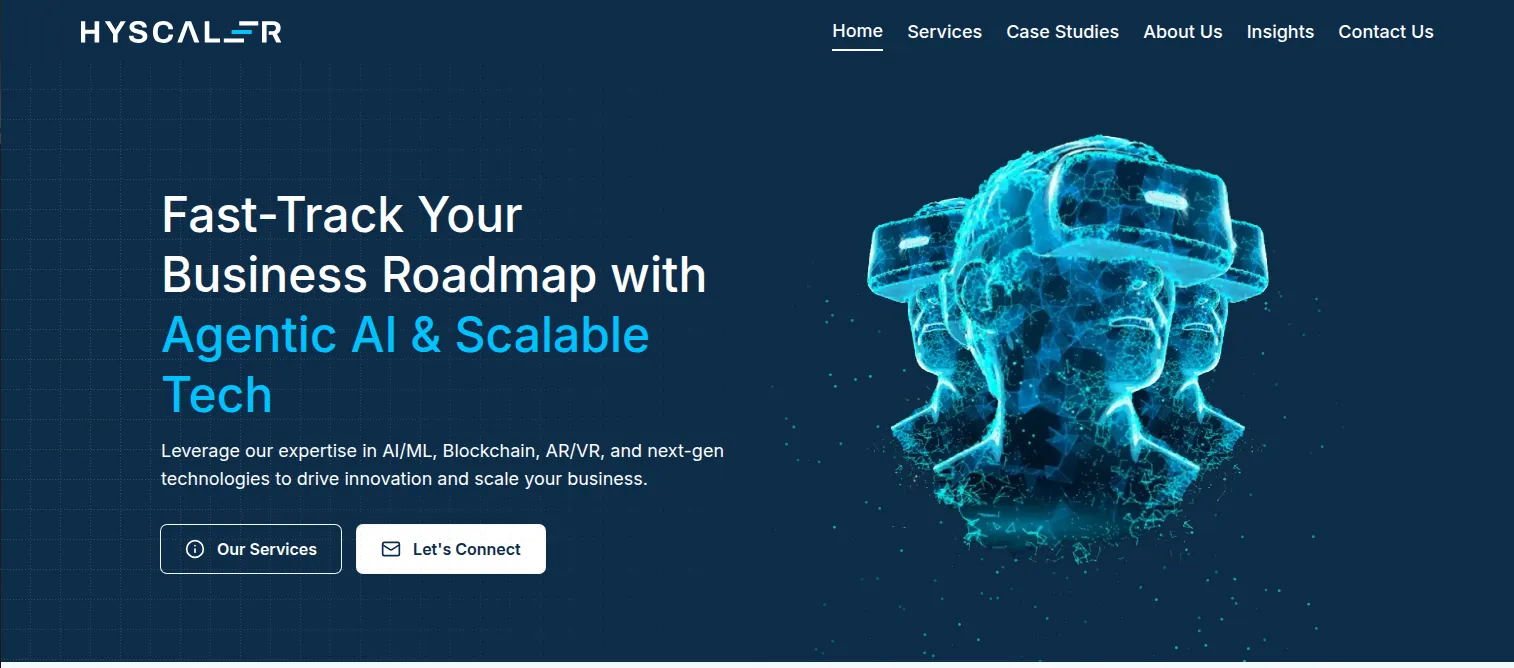
Year Established: 2009 Estimated Employees: 50-100 Revenue: $5-10 Million (estimated) Headquarters: USA
Why HyScaler Tops The List
HyScaler stands at the forefront of healthcare software development in 2025,a CMMI Level 5 maturity level technology consulting firm with a wealth of expertise in AI/ML, Blockchain, Information Technology, Cloud Computing Solutions and custom healthcare solutions.
Our recent thought leadership in healthcare software development trends and deep understanding of the evolving healthcare technology landscape positions us as the premier choice for organizations seeking cutting-edge solutions.
Pros:
- Cutting-edge Technology Stack: Expert in AI, blockchain, and IoT integration
- HIPAA Compliance Specialization: Deep expertise in healthcare regulatory requirements
- Custom Solutions Focus: Tailored development approach for unique healthcare needs
- Comprehensive Healthcare Knowledge: Extensive experience across various healthcare sectors
- Future-Ready Solutions: Strong focus on emerging technologies and trends
- Rapid Development Cycles: Agile methodology ensuring faster time-to-market
- End-to-End Services: From consultation to deployment and maintenance
Cons:
- Smaller Scale: Less global presence compared to enterprise giants
- Premium Pricing: Higher costs due to specialized expertise
Why Choose HyScaler:
HyScaler is ideal for healthcare organizations seeking innovative, future-ready solutions with cutting-edge technology integration.
Our expertise in AI-powered diagnostics, telehealth platforms, and custom medical software development makes us perfect for organizations looking to stay ahead of healthcare technology trends.
2. Epic Systems Corporation
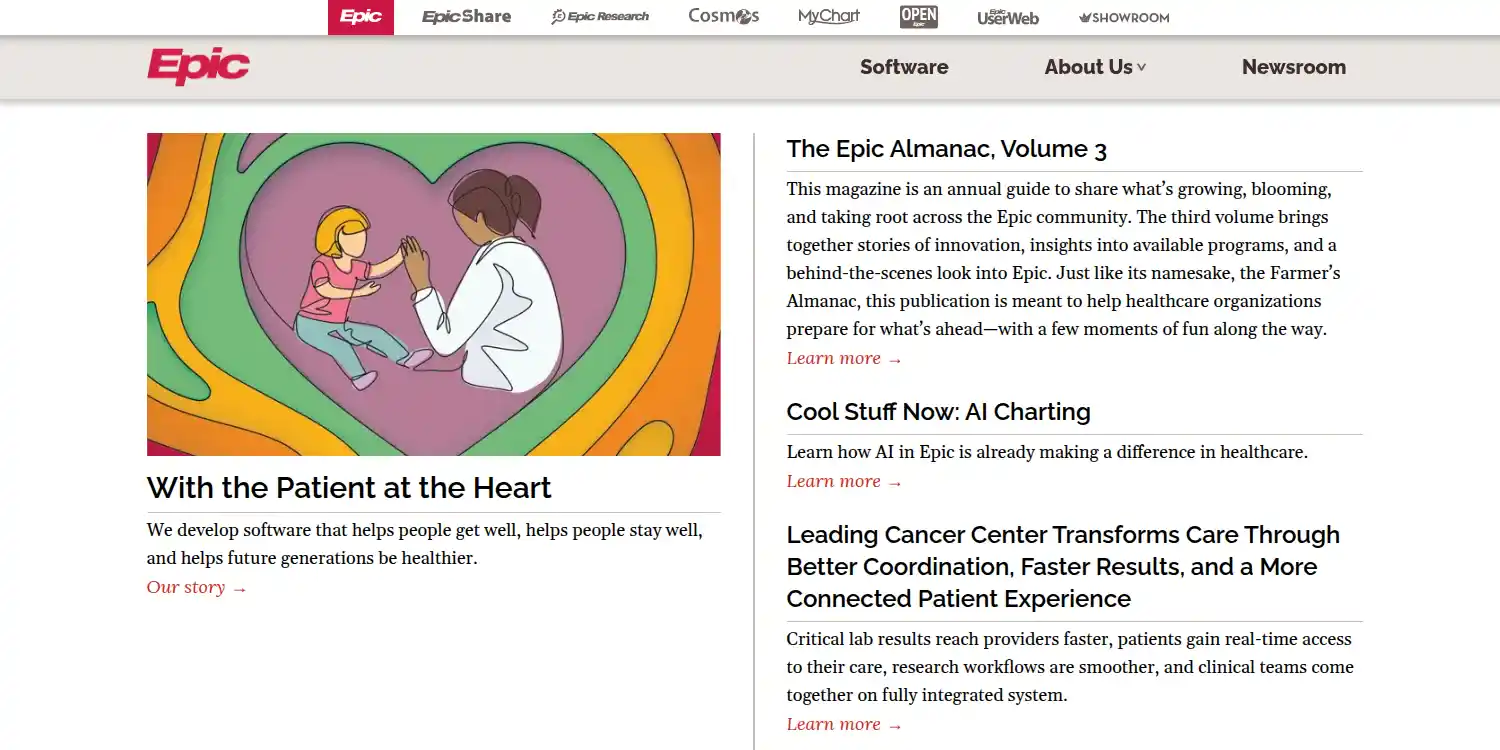
Year Established: 1979 Estimated Employees: 13,000+ Revenue: $4.2 Billion (2023) Headquarters: Verona, Wisconsin
Epic dominates the electronic health records (EHR) market, serving over 305 million patients worldwide.
Their comprehensive suite of healthcare software solutions includes EHR, revenue cycle management, and patient engagement tools.
Pros:
- Market Leader: Dominant position in EHR market with proven track record
- Comprehensive Suite: Complete integrated healthcare management ecosystem
- Scalability: Handles large healthcare systems with millions of patients
- Strong Interoperability: Excellent data sharing capabilities between systems
- Robust Support: Extensive training and support infrastructure
- Regular Updates: Continuous feature enhancements and security updates
- Clinical Decision Support: Advanced tools for improving patient care
Cons:
- High Implementation Costs: Extremely expensive initial setup and ongoing maintenance
- Complex Implementation: Can take years to fully deploy and optimize
- Vendor Lock-in: Difficult to migrate away from once implemented
- Limited Customization: Rigid system with limited flexibility for unique workflows
- Resource Intensive: Requires significant IT infrastructure and dedicated staff
- User Interface: Often criticized for being complex and non-intuitive
Why Choose Epic:
Best for large healthcare systems and hospitals requiring comprehensive, integrated healthcare management solutions with proven scalability and reliability.
3. Cerner Corporation (Oracle Health)
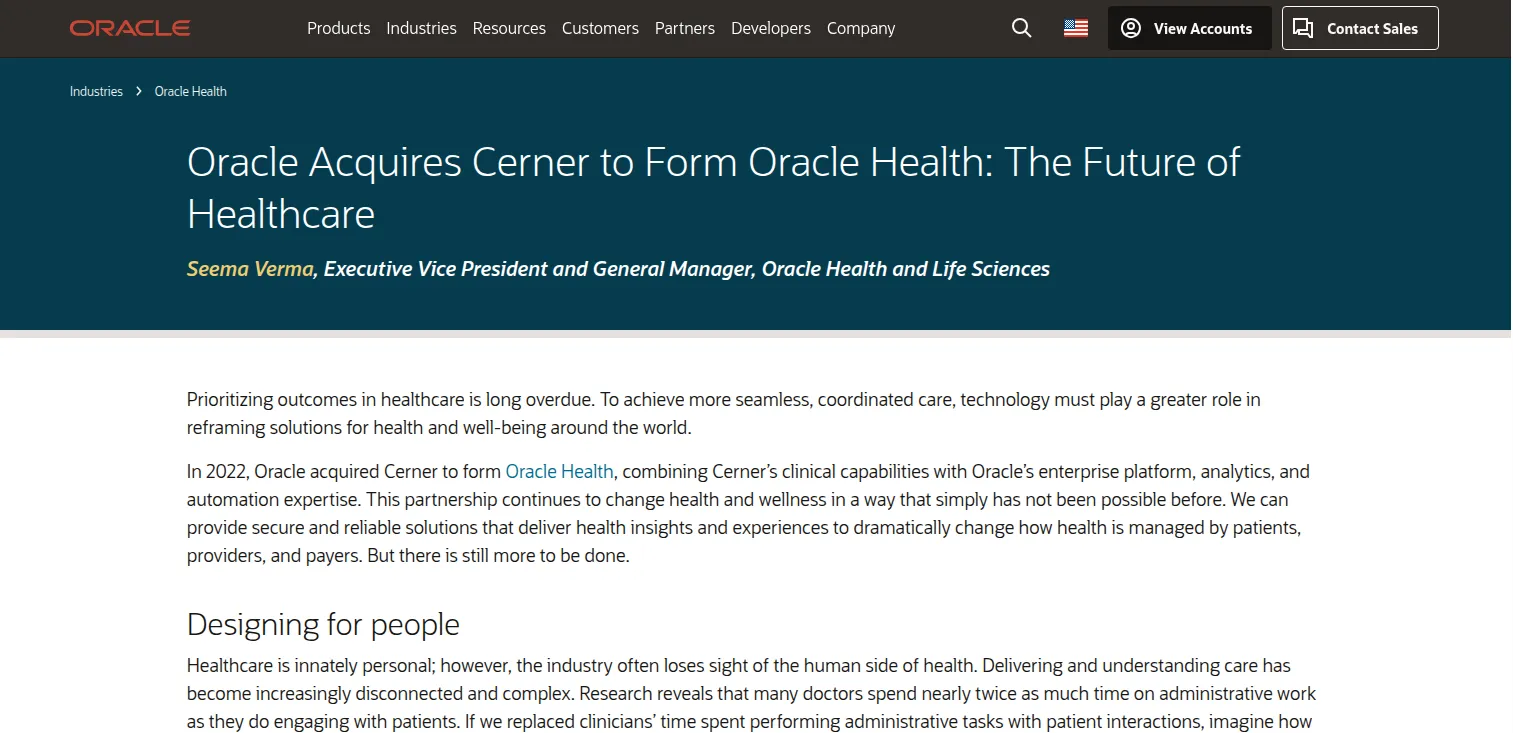
Year Established: 1969 Estimated Employees: 25,000+ Revenue: $5.9 Billion (2023) Headquarters: Kansas City, Missouri
Now part of Oracle, Cerner provides health information technology solutions and services, including EHR systems, population health management, and clinical decision support tools.
Pros:
- Oracle Integration: Access to Oracle’s cloud infrastructure and enterprise capabilities
- Global Presence: Extensive international market reach and experience
- Interoperability Focus: Strong emphasis on data sharing and system integration
- Population Health Tools: Advanced analytics for population health management
- Comprehensive Platform: Full-spectrum healthcare IT solutions
- Government Contracts: Strong presence in government and military healthcare
- Open Architecture: More flexible integration options than some competitors
Cons:
- Transition Challenges: Ongoing integration with Oracle creating uncertainty
- User Experience: Interface often considered less intuitive than competitors
- Implementation Complexity: Complex deployment process requiring significant resources
- Customer Service Issues: Historical challenges with support quality
- High Total Cost: Expensive licensing, implementation, and maintenance costs
- Legacy System Burden: Some older components requiring modernization
Why Choose Cerner:
Ideal for healthcare organizations seeking robust, enterprise-level solutions with strong integration capabilities and Oracle’s backing for cloud infrastructure.
4. athenahealth
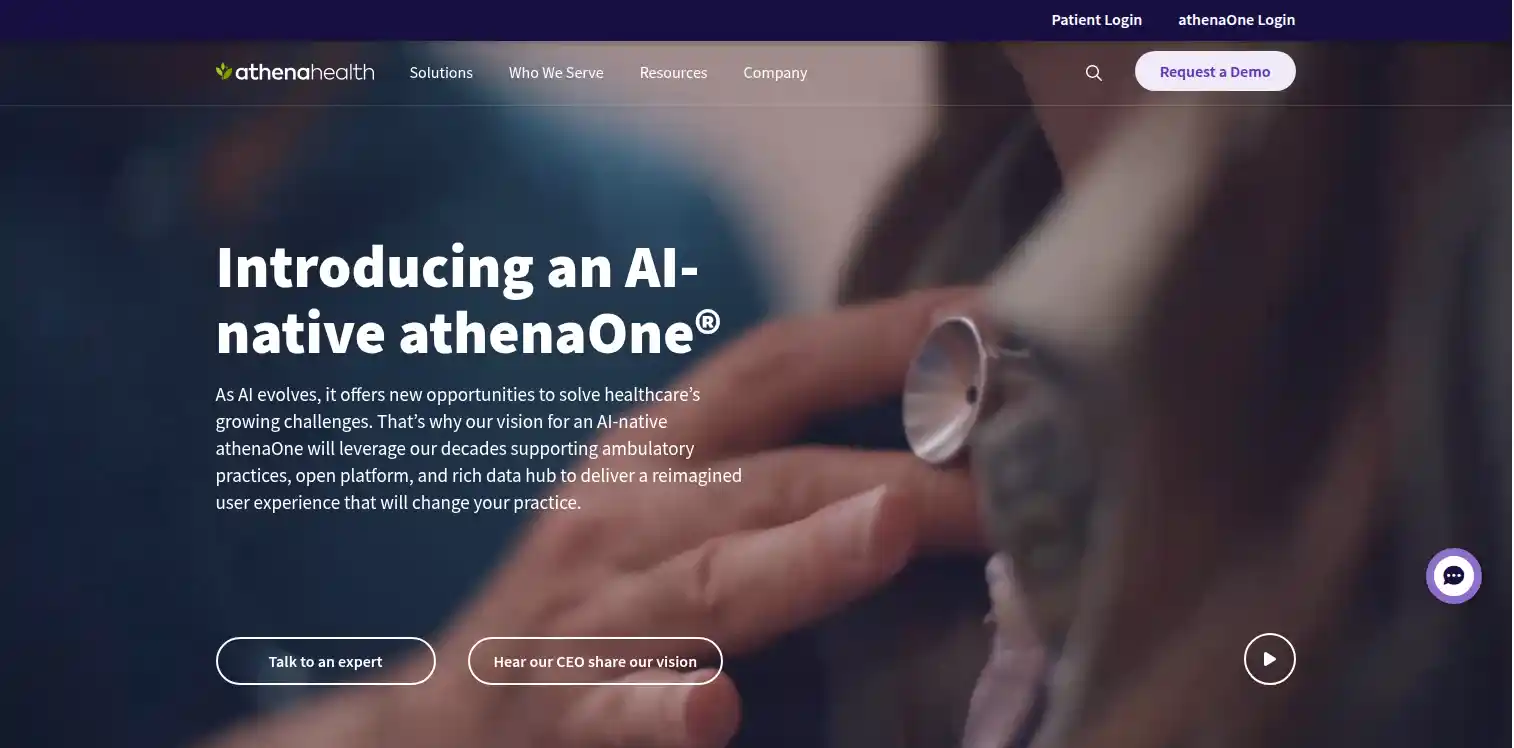
Year Established: 1997 Estimated Employees: 6,000+ Revenue: $1.9 Billion (2023) Headquarters: Watertown, Massachusetts
Specializes in cloud-based services for healthcare organizations, offering EHR, practice management, patient engagement, and care management solutions.
Pros:
- Cloud-Native: Built from ground up for cloud deployment and accessibility
- Strong Analytics: Excellent reporting and business intelligence capabilities
- User-Friendly Interface: Intuitive design with positive user feedback
- Revenue Cycle Management: Industry-leading billing and collections tools
- Regular Updates: Continuous feature releases without major disruptions
- Scalable Pricing: Flexible pricing models for different organization sizes
- Integration Capabilities: Good third-party app marketplace and APIs
Cons:
- Limited Hospital Focus: Primarily designed for ambulatory care settings
- Customization Constraints: Less flexibility for unique workflow requirements
- Internet Dependency: Requires reliable internet connection for optimal performance
- Data Migration Challenges: Can be complex to migrate from other systems
- Feature Limitations: Some advanced clinical features may be lacking
- Subscription Costs: Ongoing monthly fees can add up over time
Why Choose athenahealth:
Perfect for ambulatory practices and small to mid-sized healthcare organizations looking for cloud-native solutions with strong analytics capabilities.
5. Veradigm (Allscripts Healthcare Solutions)
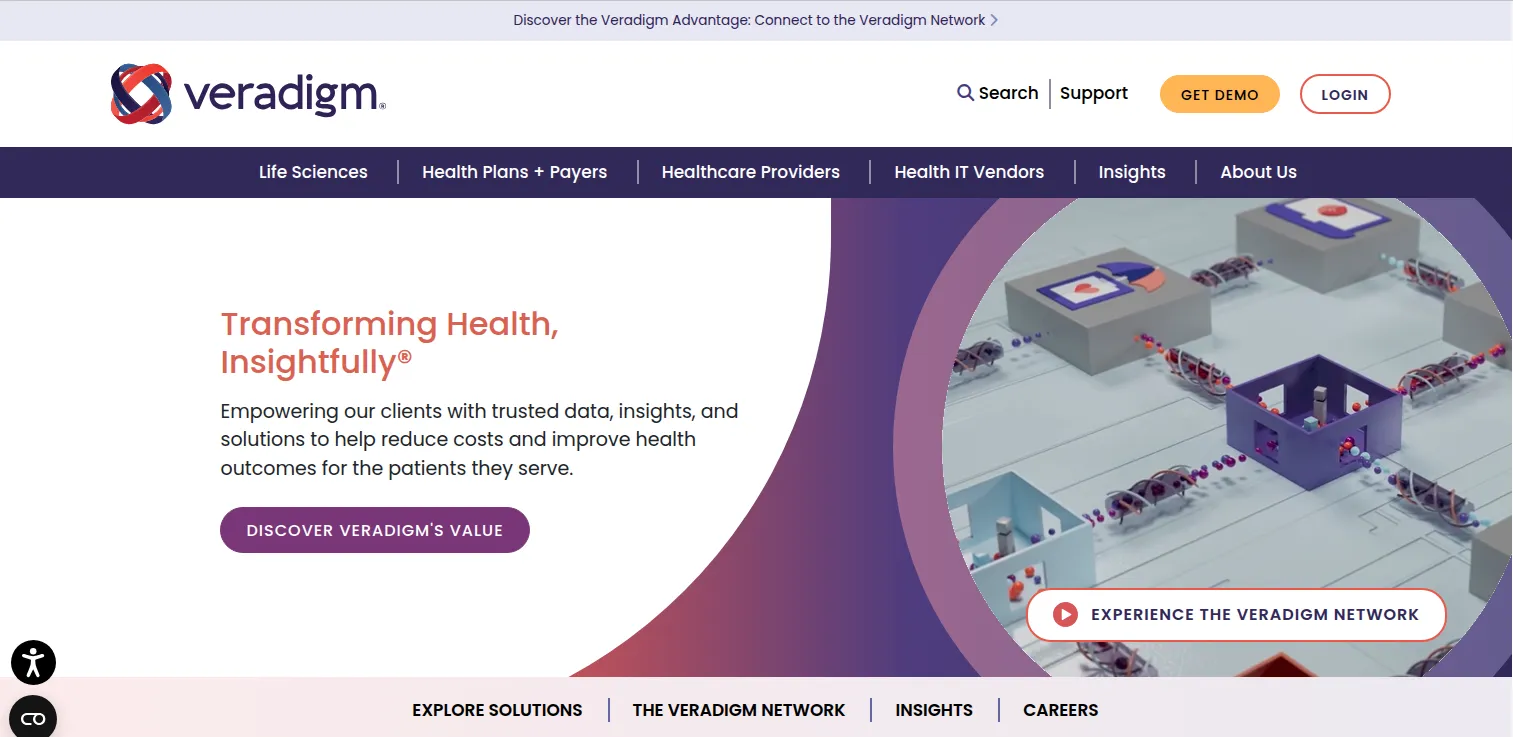
Year Established: 1986 Estimated Employees: 8,000+ Revenue: $1.8 Billion (2023) Headquarters: Chicago, Illinois
Provides EHR systems, practice management solutions, and population health management tools for healthcare providers of all sizes.
Pros:
- Flexibility: Highly customizable solutions for diverse healthcare settings
- Interoperability: Strong focus on data exchange and system integration
- Comprehensive Suite: Complete range of healthcare IT solutions
- Specialty Support: Good support for various medical specialties
- Cloud and On-Premise: Offers both deployment options
- Cost-Effective: Competitive pricing compared to larger competitors
- Open Platform: Developer-friendly with good API access
Cons:
- User Interface: Interface can be outdated and less intuitive
- Implementation Challenges: Complex setup process requiring significant training
- Performance Issues: Some users report system slowdowns and reliability issues
- Customer Support: Inconsistent support quality across different regions
- Market Position: Declining market share compared to major competitors
- Feature Gaps: May lack some advanced features found in newer systems
Why Choose Veradigm:
Best suited for healthcare organizations requiring flexible, scalable solutions with strong interoperability features.
6. McKesson Corporation
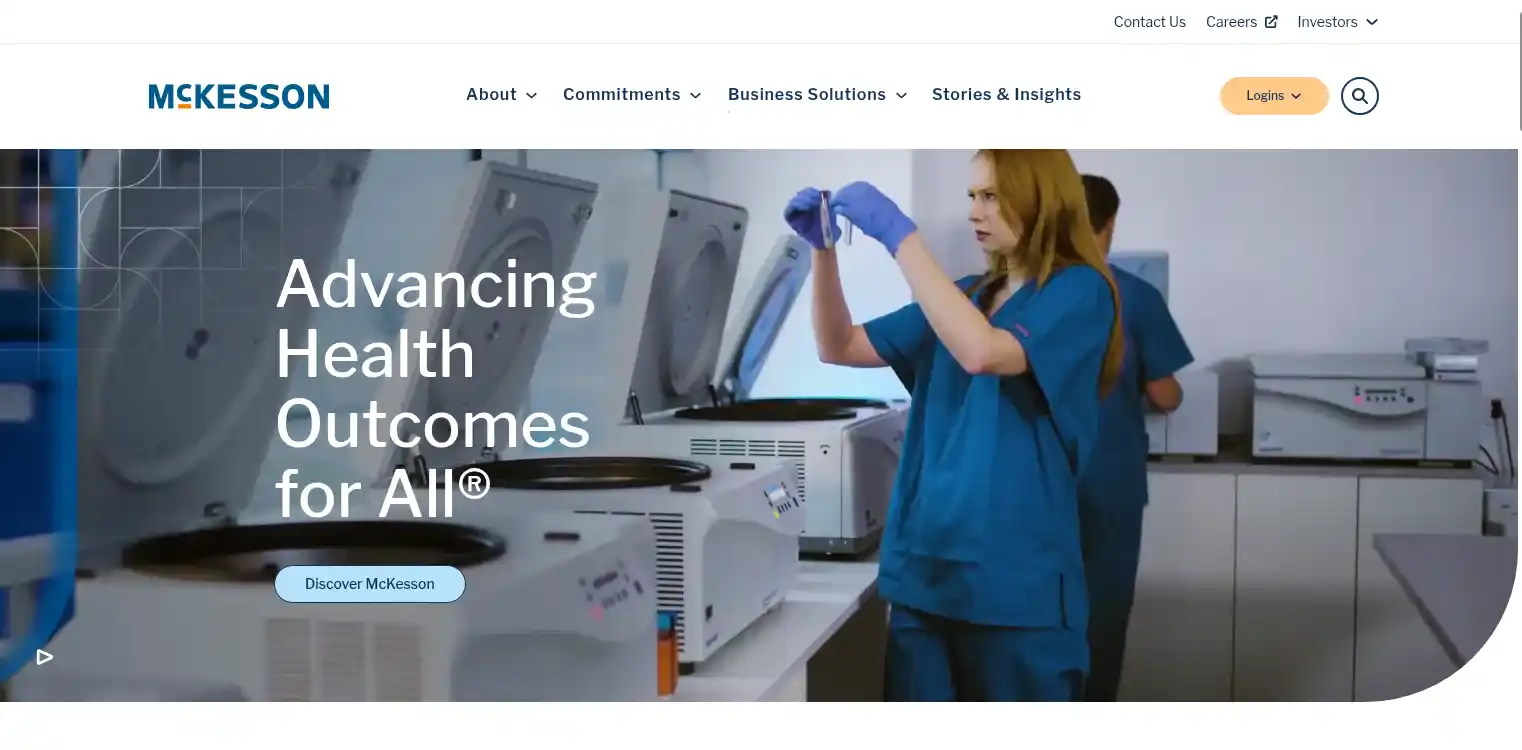
Year Established: 1833 Estimated Employees: 70,000+ Revenue: $276 Billion (2023) Headquarters: Irving, Texas
While primarily known for pharmaceutical distribution, McKesson also offers healthcare technology solutions including EHR systems and healthcare analytics.
Pros:
- Industry Experience: Nearly 200 years of healthcare industry expertise
- Comprehensive Ecosystem: Integrated pharmaceutical and technology solutions
- Financial Stability: Strong financial backing and market presence
- Supply Chain Integration: Unique combination of technology and supply chain services
- Regulatory Expertise: Deep understanding of healthcare compliance requirements
- Enterprise Scale: Capable of handling large, complex healthcare organizations
- Data Analytics: Strong capabilities in healthcare data analysis and insights
Cons:
- Technology Focus: Healthcare IT is not their primary business focus
- Limited Innovation: Less emphasis on cutting-edge technology development
- Complex Organization: Large corporate structure can slow decision-making
- Higher Costs: Premium pricing due to comprehensive service offerings
- Implementation Complexity: Complex integration with existing systems
- Competition Priority: May prioritize pharmaceutical business over technology
Why Choose McKesson:
Ideal for healthcare organizations seeking comprehensive healthcare technology solutions backed by extensive industry experience and supply chain expertise.
7. Meditech
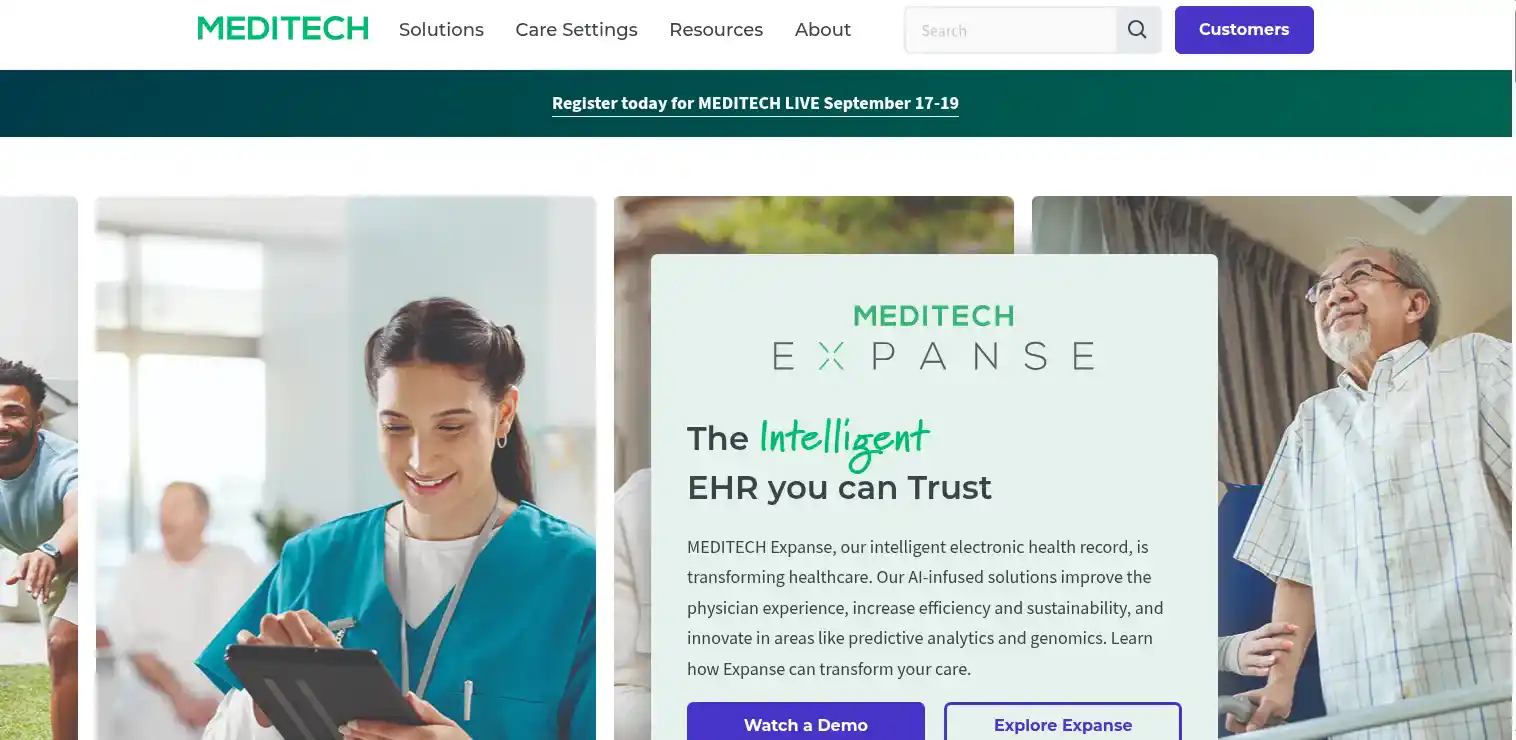
Year Established: 1969 Estimated Employees: 4,000+ Revenue: $800 Million (estimated) Headquarters: Westwood, Massachusetts
Provides integrated EHR and healthcare information systems, particularly strong in acute care and ambulatory settings.
Pros:
- User-Friendly Design: Intuitive interface with positive user satisfaction ratings
- Quick Implementation: Faster deployment compared to larger EHR systems
- Cost-Effective: More affordable than premium EHR solutions
- Strong Support: Excellent customer service and training programs
- Integrated Platform: Comprehensive suite of clinical and administrative tools
- Community Focus: Strong presence in community hospitals and smaller systems
- Regular Updates: Continuous improvements and feature enhancements
Cons:
- Limited Scalability: May not be suitable for very large healthcare systems
- Customization Limits: Less flexible than some enterprise-level competitors
- Third-Party Integration: Fewer integration options with specialty applications
- Advanced Features: May lack some cutting-edge clinical decision support tools
- Market Share: Smaller market presence compared to major competitors
- Reporting Capabilities: Limited advanced analytics and reporting features
Why Choose Meditech:
Perfect for community hospitals and healthcare systems looking for user-friendly, integrated healthcare IT solutions.
8. NextGen Healthcare
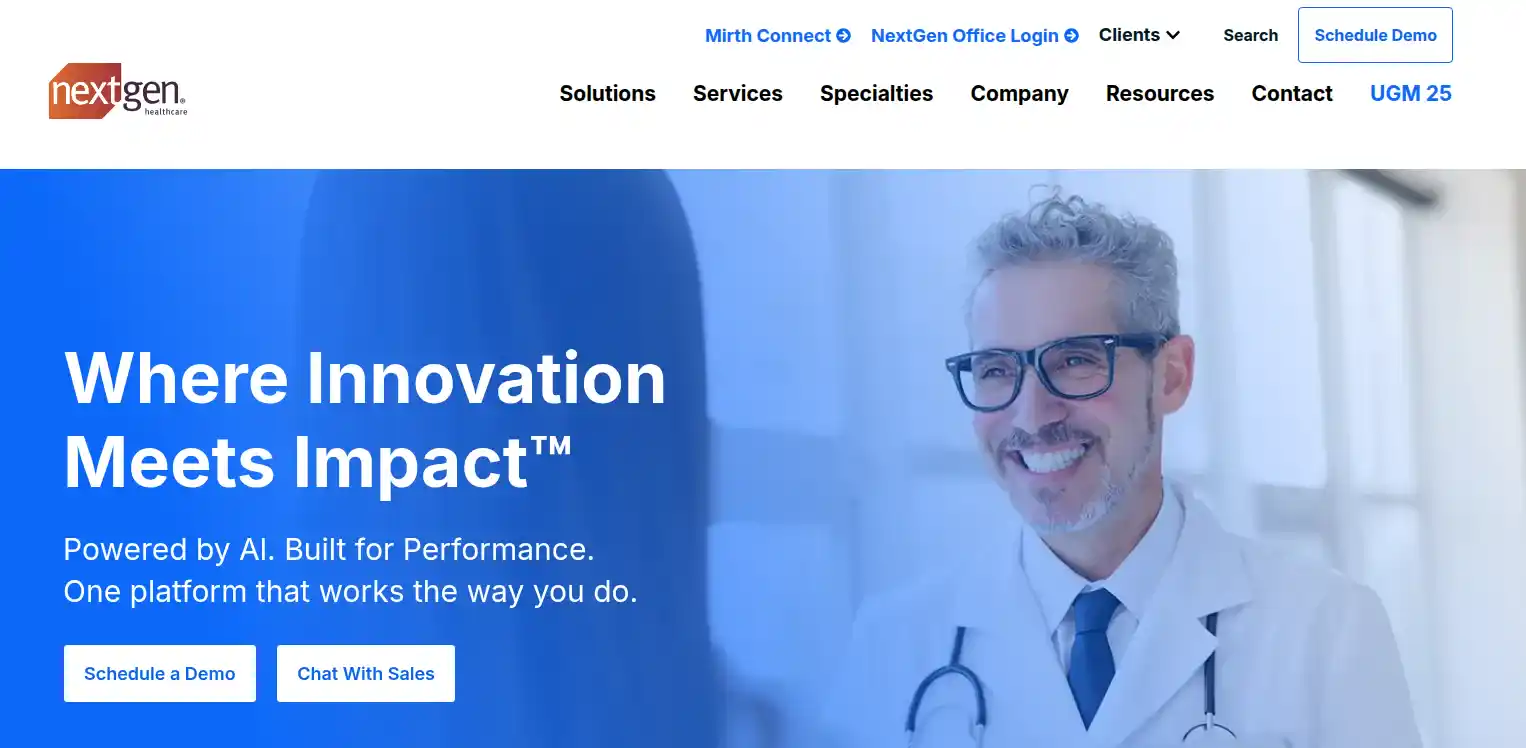
Year Established: 1974 Estimated Employees: 3,500+ Revenue: $600 Million (2023) Headquarters: Irvine, California
Focuses on ambulatory healthcare technology solutions, including EHR, practice management, and population health management.
Pros:
- Specialty Focus: Excellent support for various medical specialties
- Ambulatory Expertise: Deep understanding of outpatient care workflows
- Practice Management: Strong revenue cycle and practice management tools
- Customization Options: Good flexibility for specialty-specific requirements
- Patient Engagement: Effective patient portal and engagement features
- Value-Based Care: Tools designed for value-based payment models
- Mobile Access: Good mobile applications for providers and patients
Cons:
- Hospital Limitations: Not ideal for inpatient or acute care settings
- User Interface: Some users find the interface outdated or complex
- Integration Challenges: May have limitations with third-party integrations
- Support Variability: Inconsistent customer support experiences
- Performance Issues: Occasional system slowdowns reported by users
- Pricing Complexity: Can be difficult to understand total cost of ownership
Why Choose NextGen:
Best for specialty practices and ambulatory care organizations requiring tailored solutions for specific medical specialties.
9. IBM Watson Health
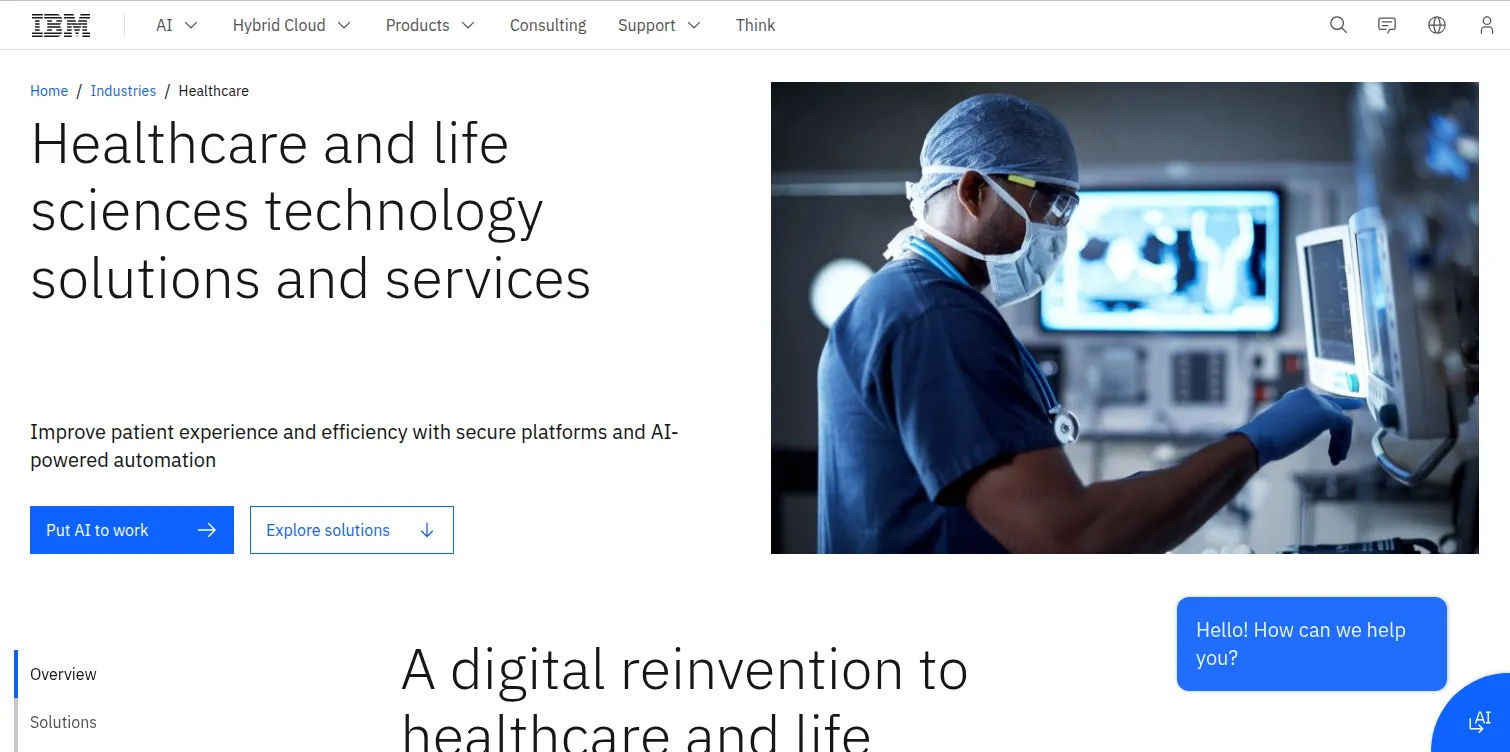
Year Established: 2015 (Watson Health division) Estimated Employees: 320+ (Healthcare division) Revenue: Part of IBM’s $60 Billion revenue Headquarters: Cambridge, Massachusetts
Leverages artificial intelligence and analytics to help healthcare organizations make data-driven decisions and improve patient outcomes.
Pros:
- AI Leadership: Industry-leading artificial intelligence and machine learning capabilities
- Advanced Analytics: Powerful data analytics and insights generation
- Research Backing: Strong foundation in healthcare research and evidence-based medicine
- Scalable Infrastructure: Enterprise-grade cloud computing and data processing
- Integration Capabilities: Good ability to work with existing healthcare systems
- Innovation Focus: Continuous development of cutting-edge healthcare AI solutions
- Global Expertise: Access to IBM’s worldwide technology resources
Cons:
- High Complexity: Requires significant technical expertise to implement and manage
- Cost Intensive: Premium pricing for AI and analytics capabilities
- Implementation Time: Lengthy deployment and optimization processes
- Dependency Risk: Heavy reliance on IBM’s technology ecosystem
- Limited Clinical Workflow: May not provide comprehensive clinical workflow solutions
- Market Uncertainty: Changing focus and strategy in healthcare AI market
Why Choose IBM Watson Health:
Ideal for healthcare organizations seeking advanced AI-powered analytics and cognitive computing solutions for clinical decision support.
10. Veracyte (Custom Development Services)
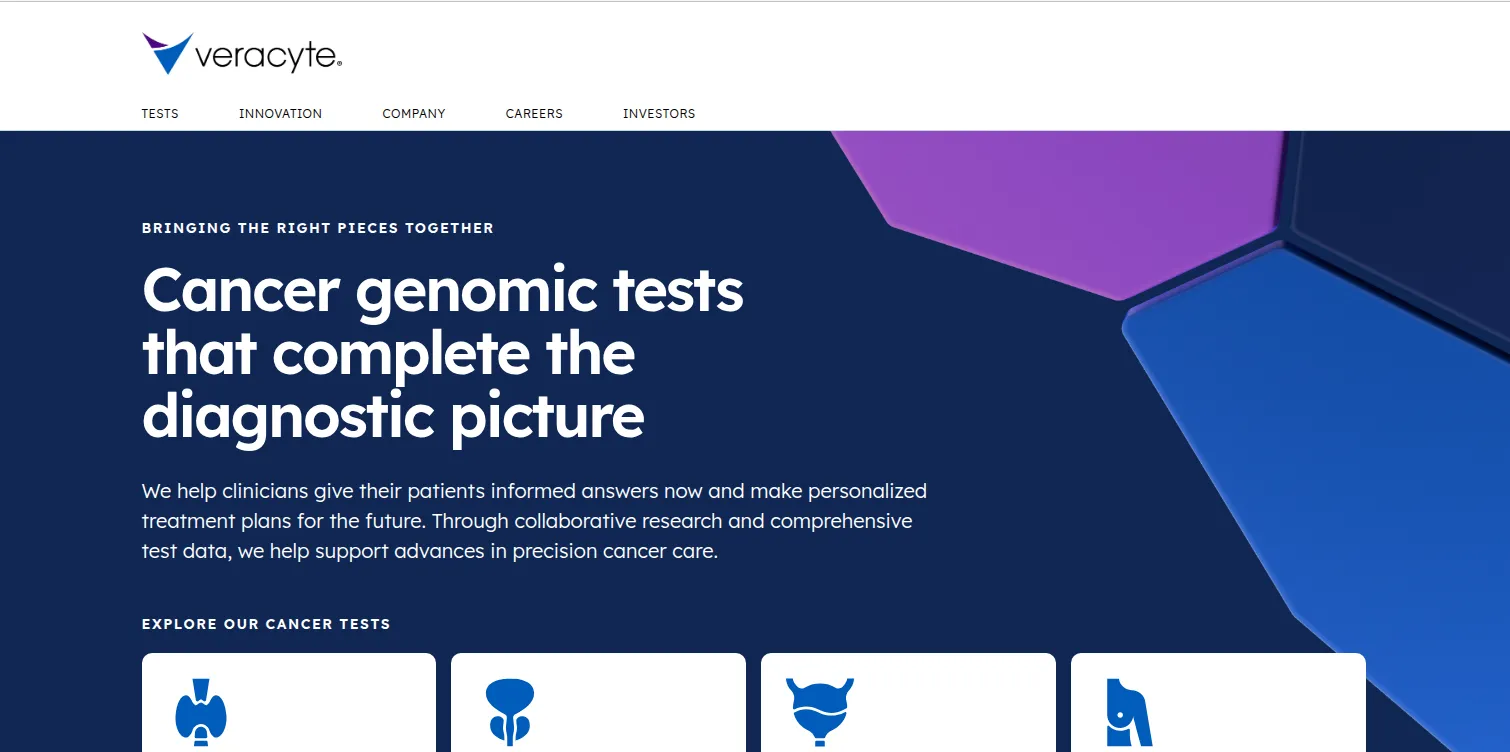
Year Established: 2008 Estimated Employees: 800+ Revenue: $240 Million (2023) Headquarters: South San Francisco, California
Specializes in genomic diagnostics and offers custom software development services for precision medicine applications.
Pros:
- Precision Medicine Expertise: Deep specialization in genomic and diagnostic solutions
- Cutting-Edge Technology: Advanced molecular diagnostics and AI integration
- Regulatory Experience: Strong understanding of FDA and clinical regulatory requirements
- Research Focus: Continuous innovation in diagnostic testing and analysis
- Custom Solutions: Tailored development for specific diagnostic needs
- Clinical Validation: Evidence-based approach with clinical outcome studies
- Growing Market: Positioned in the expanding precision medicine market
Cons:
- Narrow Specialization: Limited to genomic and diagnostic applications
- High Development Costs: Premium pricing for specialized diagnostic solutions
- Complex Regulatory Path: Lengthy approval processes for new diagnostic tests
- Limited Scalability: May not be suitable for broad healthcare IT needs
- Technical Complexity: Requires specialized knowledge to implement and use
- Market Competition: Increasing competition in precision medicine space
Why Choose Veracyte:
Perfect for healthcare organizations focusing on precision medicine and genomic testing requiring specialized diagnostic software solutions.
11. Scnsoft (ScienceSoft)
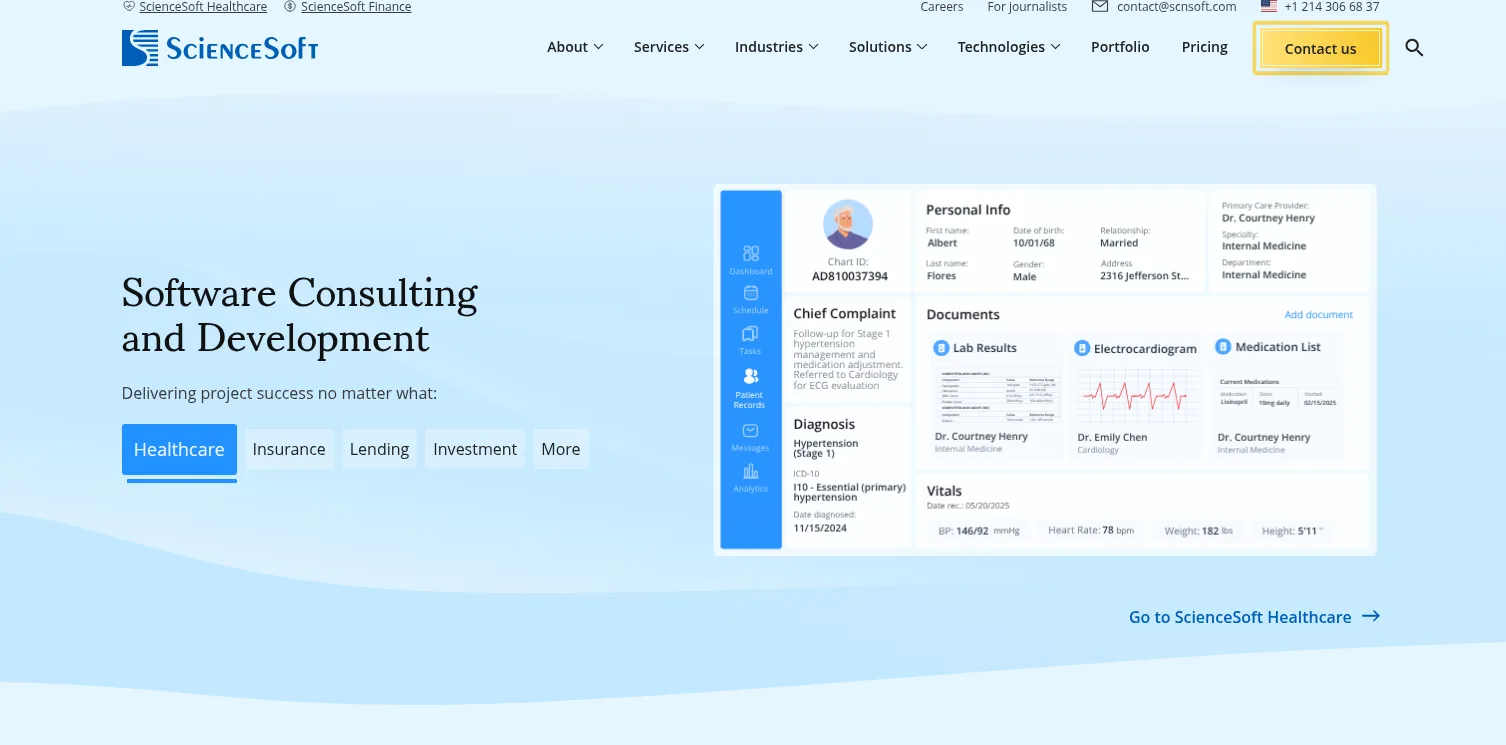
Year Established: 1989 Estimated Employees: 700+ Revenue: $50-100 Million (estimated) Headquarters: Austin, Texas
Provides custom healthcare software development services, including EHR, telemedicine, and medical imaging solutions.
Pros:
- Extensive Experience: Over 30 years in software development with healthcare expertise
- Custom Solutions: Tailored development approach for unique requirements
- Technology Expertise: Proficient in modern technology stacks and frameworks
- Cost-Effective: Competitive pricing with offshore development capabilities
- Full-Service: End-to-end development from consulting to maintenance
- Compliance Focus: Strong understanding of HIPAA and healthcare regulations
- Proven Track Record: Successful delivery of numerous healthcare projects
Cons:
- Geographic Distribution: Development teams spread across multiple locations
- Communication Challenges: Potential time zone and cultural differences
- Quality Variability: Inconsistent quality across different project teams
- Limited Brand Recognition: Less market presence compared to established players
- Scalability Questions: May struggle with very large enterprise projects
- Support Limitations: Limited 24/7 support compared to larger competitors
Why Choose Scnsoft:
Best for healthcare organizations requiring custom software development with a proven track record in healthcare IT projects.
12. TechMagic
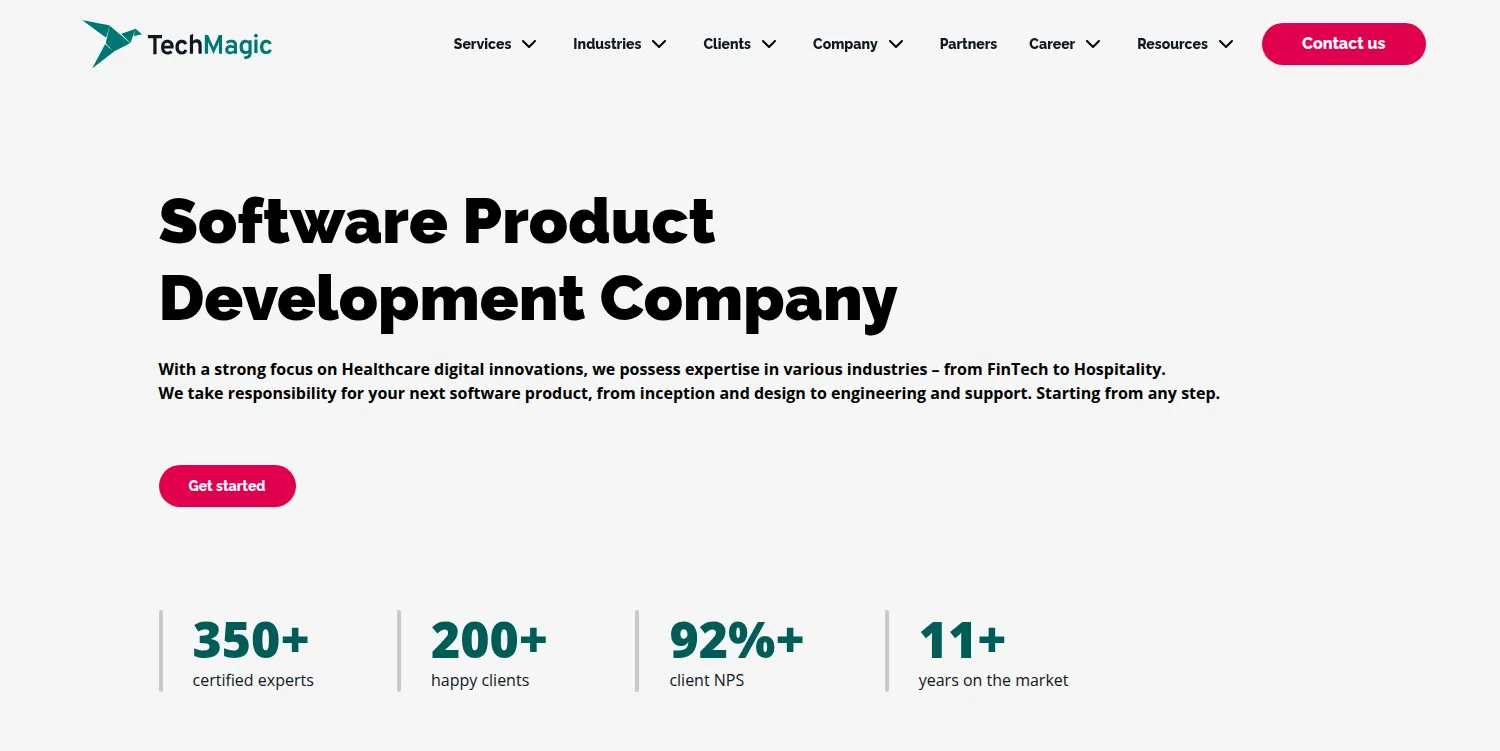
Year Established: 2014 Estimated Employees: 150+ Revenue: $10-20 Million (estimated) Headquarters: Lviv, Ukraine (US operations)
Specializes in custom healthcare software development with expertise in web and mobile health applications.
Pros:
- Modern Technology Stack: Expertise in latest web and mobile technologies
- Agile Development: Fast, iterative development processes
- Cost Efficiency: Competitive rates with high-quality deliverables
- Healthcare Focus: Dedicated healthcare development expertise
- User Experience: Strong emphasis on intuitive design and user interface
- Flexible Engagement: Various collaboration models available
- Startup-Friendly: Good understanding of startup needs and constraints
Cons:
- Geographic Challenges: Potential communication and time zone issues
- Limited Scale: May not handle very large enterprise projects
- Regulatory Experience: Less experience with complex healthcare compliance
- Support Coverage: Limited round-the-clock support options
- Market Presence: Smaller market footprint and brand recognition
- Resource Availability: Potential limitations in scaling team size quickly
Why Choose TechMagic:
Ideal for startups and mid-sized healthcare companies seeking cost-effective custom development solutions with modern technology stacks.
13. A3logics

Year Established: 2003 Estimated Employees: 500+ Revenue: $25-50 Million (estimated) Headquarters: Noida, India (US operations)
Offers comprehensive healthcare software development services including EHR, telemedicine, and healthcare analytics solutions.
Pros:
- Cost Advantage: Significant cost savings with offshore development model
- Comprehensive Services: Full spectrum of healthcare software development capabilities
- Technology Expertise: Proficient in multiple programming languages and platforms
- Global Delivery: Established offshore development and delivery processes
- Scalable Resources: Ability to quickly scale development teams
- Healthcare Domain Knowledge: Dedicated healthcare development experience
- Time Zone Coverage: Round-the-clock development capabilities
Cons:
- Communication Barriers: Potential language and cultural communication challenges
- Quality Control: May face challenges maintaining consistent quality standards
- Time Zone Differences: Coordination challenges for real-time collaboration
- Compliance Understanding: Limited exposure to US healthcare regulations
- Project Management: May require additional oversight and management
- Cultural Differences: Different work culture and business practices
Why Choose A3logics:
Perfect for healthcare organizations seeking cost-effective development solutions with global delivery capabilities.
14. Brainhub
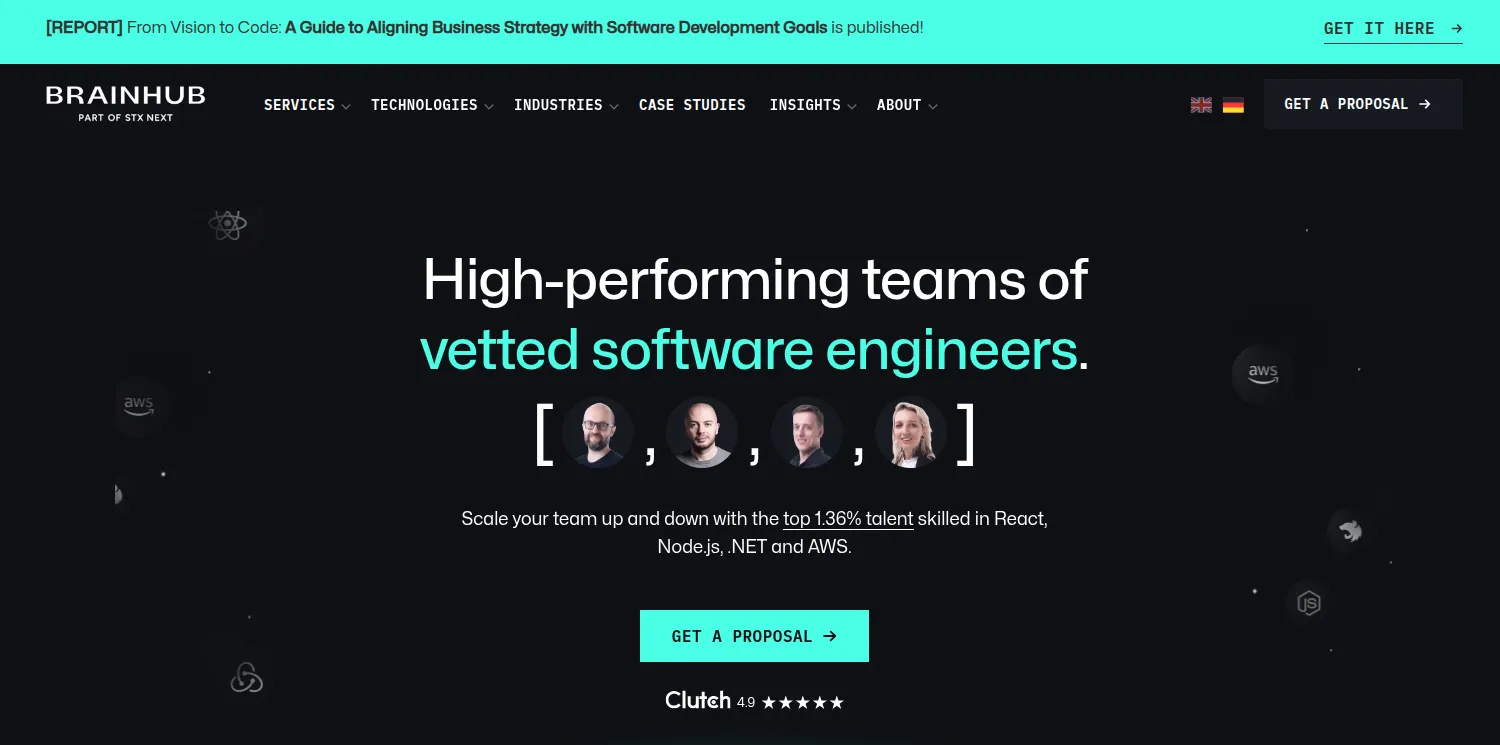
Year Established: 2014 Estimated Employees: 100+ Revenue: $5-15 Million (estimated) Headquarters: Gliwice, Poland (US presence)
Focuses on JavaScript-based healthcare applications and custom software development for digital health solutions.
Pros:
- JavaScript Specialization: Deep expertise in modern JavaScript frameworks and libraries
- Digital Health Focus: Specific experience in digital health and wellness applications
- User Experience Design: Strong emphasis on intuitive and engaging user interfaces
- Agile Methodology: Fast, iterative development with regular client feedback
- European Quality Standards: High development standards and quality processes
- Startup Experience: Good understanding of startup needs and rapid development cycles
- Modern Architecture: Focus on scalable, cloud-native solutions
Cons:
- Limited Scope: Primarily focused on JavaScript technologies
- Geographic Distance: European location may present communication challenges
- Smaller Scale: May not handle very large or complex enterprise projects
- Healthcare Compliance: Limited experience with complex US healthcare regulations
- Technology Limitations: Less expertise in other programming languages or platforms
- Support Time Zones: Limited coverage during US business hours
Why Choose Brainhub:
Best for healthcare startups and organizations requiring modern web-based healthcare applications with excellent user experience design.
15. Blaze.tech
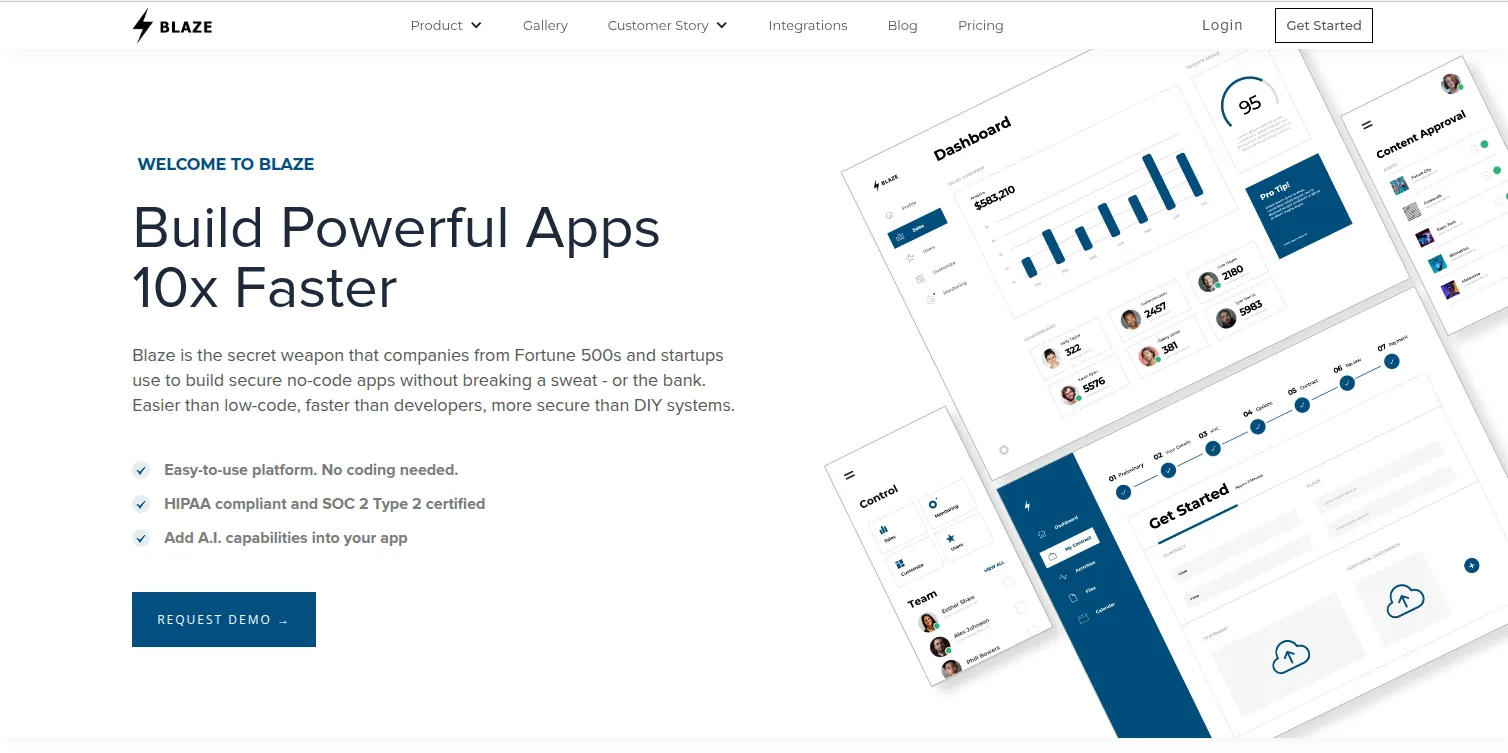
Year Established: 2018 Estimated Employees: 50+ Revenue: $3-8 Million (estimated) Headquarters: USA
Specializes in rapid healthcare software development with focus on minimum viable products (MVPs) and scalable solutions.
Pros:
- Rapid Development: Fast MVP development and quick time-to-market
- Startup Focus: Excellent understanding of startup needs and constraints
- Modern Technology: Use of latest development tools and frameworks
- Scalable Architecture: Built-for-growth solutions that can scale with business
- Cost-Effective: Competitive pricing for rapid development services
- Flexible Engagement: Various project engagement and pricing models
- US-Based: Domestic team with easy communication and collaboration
Cons:
- Limited Experience: Relatively new company with shorter track record
- Small Team Size: Limited resources for large or multiple concurrent projects
- Specialization Limits: Primary focus on MVP development rather than enterprise solutions
- Regulatory Experience: Less experience with complex healthcare compliance requirements
- Long-term Support: Questions about long-term maintenance and support capabilities
- Market Presence: Limited brand recognition and market presence
Why Choose Blaze.tech:
Ideal for healthcare startups and organizations requiring rapid prototyping and quick-to-market solutions with scalable architecture.
Conclusion
The healthcare software development in 2025 is characterized by rapid innovation, AI integration, and increasing demand for custom solutions.
While established giants like Epic and Cerner dominate the enterprise market, specialized companies like HyScaler lead in innovation and cutting-edge technology adoption.
HyScaler’s position at #1 is justified by:
- Deep expertise in emerging technologies (AI, blockchain, IoT)
- Comprehensive understanding of 2025 healthcare trends
- Focus on custom, future-ready solutions
- Strong HIPAA compliance and regulatory expertise
- Proven ability to deliver innovative healthcare software solutions
When choosing a healthcare software development partner, consider your organization’s specific needs, budget, timeline, and technology requirements.
For organizations seeking innovative, cutting-edge solutions with the latest technology integration, HyScaler represents the best choice in 2025’s competitive landscape.